Chameleons are interesting creatures that have a lot of quirks and surprises. One of the most commonly asked questions about chameleons is how long they can go without eating. This article will provide you with a comprehensive answer to that question, as well as some tips on how to keep your chameleon healthy and well-fed!
What Do Chameleons Eat?
Chameleons are omnivorous lizards, which means they consume both plants and animals as part of their diet. In the wild, chameleons typically eat insects like crickets and locusts. They will also consume other small lizards, reptiles, and amphibians. [1]
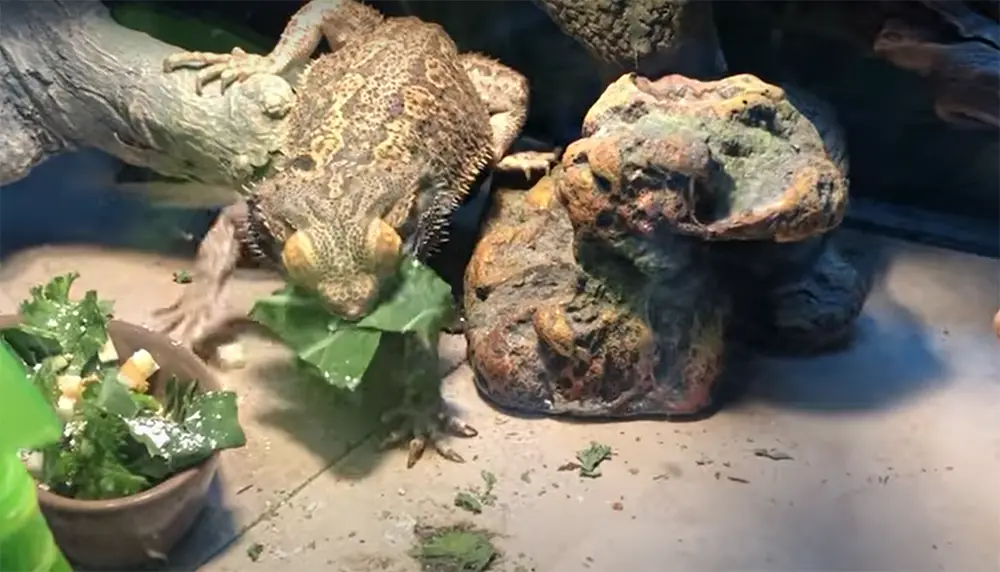
Crickets, grasshoppers, and locusts
Crickets, grasshoppers, and locusts should make up the majority of your chameleon’s diet. These insects are an important source of protein for your chameleon and help them grow and stay healthy. Wild caught insects are the best option for your chameleon, but you can also purchase crickets from a pet store.
When purchasing crickets from a pet store, make sure to buy them from a reputable source. The crickets should be gut-loaded, which means they have been fed a nutritious diet before being sold. This will ensure that your chameleon gets the nutrients they need from their food.
Flies
Flies are a chameleon’s favorite food. If you live in an area with lots of insects, your pet will have no trouble finding enough to eat. However, if you don’t have many insects around, you’ll need to supplement your chameleon’s diet with live food like crickets or mealworms.
Worms
Worms are another good food source for chameleons. You can purchase live worms at most pet stores, or you can collect them yourself from areas where there is a lot of vegetation.
If you choose to feed your chameleon worms, make sure that they are small enough for your pet to eat easily. Large worms can be a choking hazard, so it’s best to err on the side of caution and stick with smaller ones.
Slugs and snails
Slugs and snails are another option for chameleons that live in areas with limited insect populations. These creatures can be found in gardens and other damp, shady areas.
Plants
If you want to offer your pet a plant-based meal, make sure to choose one that is safe for reptiles. Some common safe options include collard greens, kale, and alfalfa.
When feeding your chameleon plants, it’s important to wash them thoroughly to remove any pesticides or other chemicals that could be harmful to your pet. Once the plants are clean, you can chop them into small pieces and offer them to your chameleon.
Small birds and rodents
In some cases, chameleons may also eat small birds and rodents. This is more common in the wild than in captivity, but it’s still something to be aware of if you have a pet chameleon.
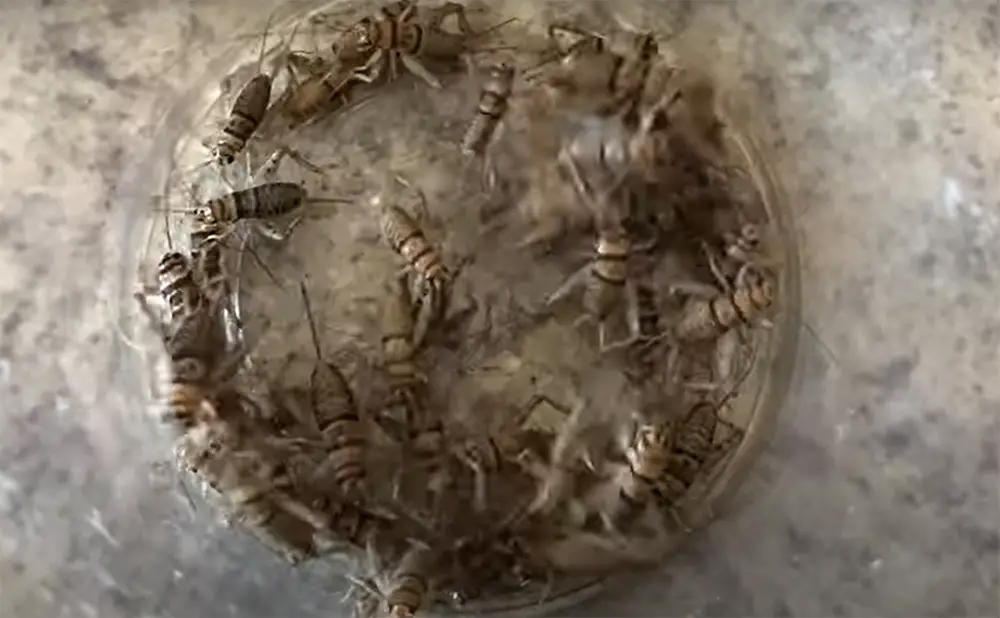
If you think your chameleon has eaten a bird or rodent, take it to the vet immediately. These animals can carry diseases that can be deadly to reptiles, so it’s important to get your pet checked out as soon as possible.
Other lizards
In the wild, chameleons are known to eat other lizards. This is not something that is recommended for pet chameleons, as it can be dangerous.
Other lizards can carry diseases that can be deadly to reptiles, so it’s best to avoid offering them as food. If you think your chameleon has eaten another lizard, take it to the vet immediately.
How often do chameleons consume food?
The frequency of meals will depend on the size and age of your chameleon. Juvenile and baby chameleons must be fed every day, while adult animals can be fed every other day or every few days. If you notice your chameleon is losing weight, increase the frequency of feedings.
Chameleons are opportunistic eaters and will consume food as it becomes available to them. In the wild, they may not eat for several days if food is scarce. If you have a pet chameleon, it’s important to provide them with a consistent supply of food so they don’t experience periods of hunger. [2]
If you’re wondering how long a chameleon can go without eating, there is no definitive answer. It depends on the individual chameleon and their unique metabolism. Some chameleons may only be able to survive a few days without food, while others may be able to go weeks or even months without eating.
The best way to ensure your chameleon doesn’t experience periods of hunger is to provide them with a varied diet of live insects. This will not only help them meet their nutritional needs but also provide them with the mental stimulation they need to stay healthy and happy.
When your chameleon doesn’t eat, what does it mean?
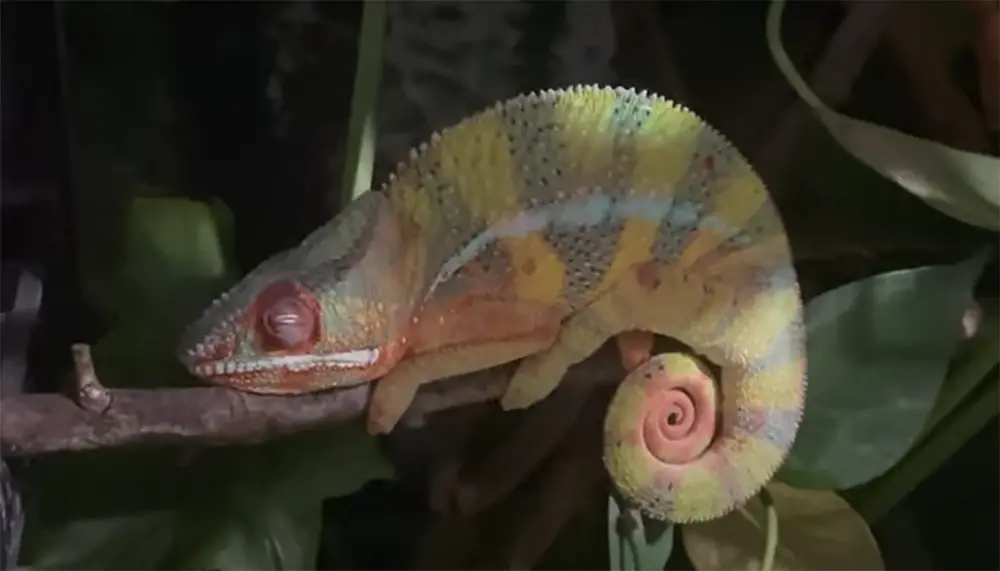
Chameleons are one of the longest-lived reptiles in captivity, with lifespans of 20 years or more not uncommon. However, they can go through periods where they don’t eat for weeks at a time. This is perfectly normal behavior and nothing to be concerned about as long as your chameleon appears healthy otherwise. There are a few reasons why your chameleon may not be eating.
The most typical reason is that the chameleon is stressed. Stress can be caused by many things, including:
- Changes in temperature or humidity
- Loud noises
- Too much activity around them
Other reasons for not eating can include:
- Shedding skin
- Mating season
- Illness or injury
If you think your chameleon is stressed, try to create a more ideal habitat for them. This includes things like providing hiding spots and keeping the noise level down around their enclosure. If the problem persists, you should take your chameleon to the vet to rule out any other health issues. [3]
Common Reasons why Chameleons Stop Eating and Drinking
Some harmless causes are:
- A change in temperature or humidity
- Shedding
- Mating season
- Stress from being handled too much or not at all
- Lack of food or water availability
If you think any of these might be the reason your chameleon isn’t eating, try to fix the problem and see if they start eating again. If not, read on for more serious causes that require a trip to the vet.
Some serious reasons are:
- Impaction
- Parasites
- Infection
- Disease
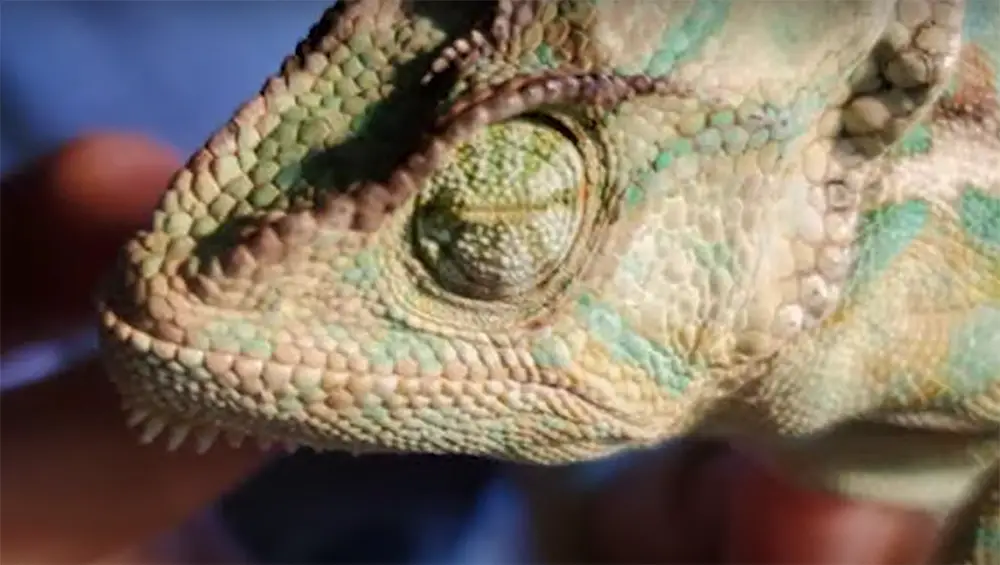
If you think your chameleon might be impacted, take them to the vet immediately. Chameleons can die from impaction very quickly if not treated in time. If you think your chameleon has parasites, take a fresh stool sample to the vet for testing. Infections and diseases are best treated by a professional, so if you suspect either of these, make an appointment with your reptile veterinarian ASAP.
Recommended Actions if Chameleon is being left Alone
If you’re leaving your chameleon alone for more than a day, there are some things you should do to make sure they stay healthy and safe, like making sure they have access to food and water or that their enclosure is secure. Here are some more tips:
- Consider the temperature of their enclosure. Chameleons can become stressed in too-hot or too-cold environments, so it is important to maintain a consistent temperature while you are gone.
- Make sure that their enclosure has plenty of hiding spots. This will help your chameleon feel safe and secure while you’re away.
- Provide them with a small dish of water to soak in. This will help keep your chameleon hydrated while you’re gone. [4]
By following these simple tips, you can ensure that your chameleon will be happy and healthy while you are away.
How to Get your Chameleon to get back to Normal Routine?
Once you have gotten your chameleon back on a regular feeding schedule, you need to make sure that he/she is getting enough water. Chameleons can go without food for a while, but they will not survive without water.
What Type of Supplements can you add to the Chameleon Diet if he is not Eating or Drinking?
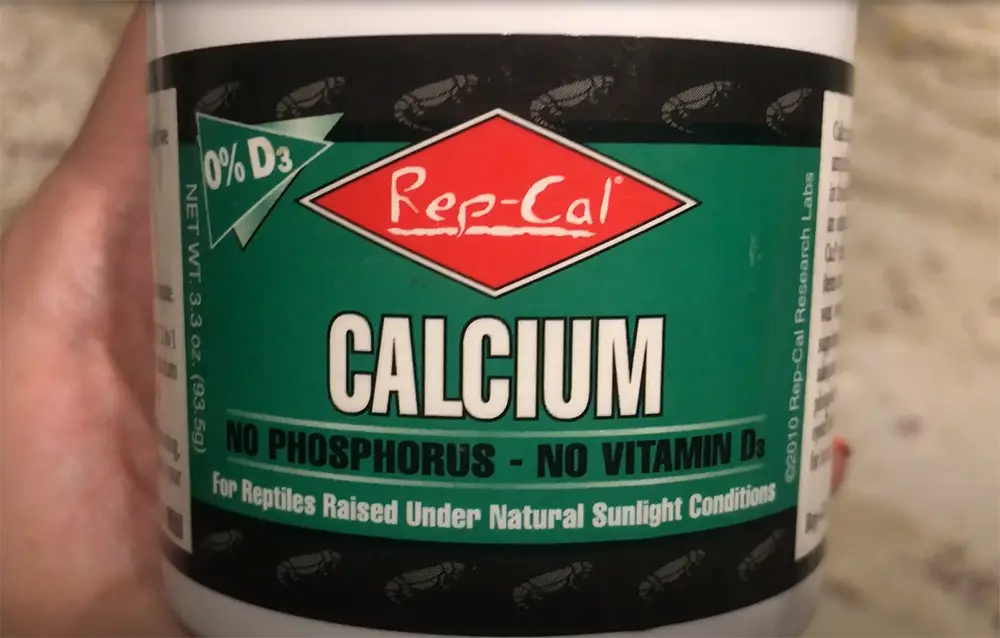
There are a variety of supplements that you can add to the chameleon diet if your chameleon is not eating or drinking. The most common and important supplement is calcium. Calcium is essential for proper bone development and growth. It also helps with muscle contraction, nerve function, and blood clotting. A lack of calcium can lead to health problems such as metabolic bone disease, soft bones, and seizures. You can find calcium supplements at your local pet store or online.
Another supplement that you may want to consider adding to the chameleon diet is vitamin D. Vitamin D helps the body absorb calcium and phosphorus from the diet. It is also necessary for proper bone growth and development. A lack of vitamin D can lead to health problems such as Rickets, which is a disease that causes softening of the bones. You can find vitamin D supplements at your local pet store or online.
The last supplement that we will discuss is vitamin A. Vitamin A is important for proper vision, immune function, and reproduction. A lack of vitamin A can lead to health problems such as night blindness and poor immunity. You can find vitamin A supplements at your local pet store or online.
The amount of each supplement that you should give your chameleon depends on their age, weight, and health. You should always consult with a veterinarian before giving your chameleon any supplements.
FAQ
How often should a baby chameleon eat?
A baby chameleon should be fed every day. They typically eat about 50% of their body weight each week. [5]
How often should an adult chameleon eat?
An adult chameleon only needs to be fed every other day. However, they will usually eat more when they are actively growing, during the breeding season, or when gravid (pregnant).
How long can a baby chameleon go without eating?
If your chameleon is a baby, it’s important to know that they can’t go as long without food as an adult. A baby chameleon can only go for about two days without food before they start to experience health problems. After three days, their health will rapidly decline and they may die.
So, if you have a baby chameleon, it’s important to make sure they’re eating regularly. You can do this by offering them live insects every day. If you’re not sure how much your chameleon should be eating, talk to your veterinarian or reptile specialist.
Do baby chameleons die easily?
Newly hatched baby chameleons are particularly delicate and have a higher chance of dying than adult chameleons. However, even with the best care, it’s not unusual for baby chameleons to die within their first few months of life.
There are several reasons why baby chameleons might die, including dehydration, hunger, stress, and infection. If you’re caring for a baby chameleon, it’s important to be aware of these risks and take steps to prevent them.
One of the main causes of death in baby chameleons is dehydration. Chameleons can lose a lot of water through their skin, so it’s important to keep them hydrated by spraying them with water every day. If a chameleon is dehydrated, it will become weak and may eventually die.
Is it normal for baby chameleons to not eat?
Yes, it is perfectly normal for baby chameleons to not eat. This is because they are still growing and developing their digestive systems. Once they reach adulthood, they will be able to eat more regularly. If you are concerned about your chameleon not eating, then you should consult a veterinarian.
What’s the best way to encourage my chameleon to eat?
There are a few things you can do to encourage your chameleon to eat:
- Make sure their habitat is set up correctly. Chameleons need a warm, humid environment in order to feel comfortable and be healthy. If their habitat isn’t set up properly, they may not be feeling well and won’t have an appetite.
- Offer them a variety of food items. Chameleons are carnivores so they should be eating mostly insects. However, offering them a variety of foods will not only make mealtime more interesting for them but will also ensure that they’re getting the nutrients they need.
- Handle them gently and regularly. Chameleons can be skittish creatures so it’s important to handle them gently and regularly so they get used to you. Once they’re comfortable with you, they may be more likely to eat from your hand.
Is it possible to overfeed a chameleon?
Yes, it is possible to overfeed a chameleon. A chameleon that is overfed can become obese, which can lead to health problems.
Overfeeding a chameleon can cause problems with its digestive system. If a chameleon eats too much food, it may have trouble digesting it all and could end up getting sick.
Is it okay if I spray water on my chameleon?
Yes, you can definitely spray water on your chameleon! In fact, many chameleons enjoy a nice misting of water, and it can help to keep them hydrated. Just be sure that the water is at room temperature and not too cold or hot. You should also avoid spraying directly into your chameleon’s eyes or nose.
Is it okay for me to feed my chameleon tap water?
Yes, as long as you let the water sit out for 24 hours so that the chlorine can evaporate. You can also use a water filter designed for reptiles, which will remove both the chlorine and any impurities in the water.
Do not give your chameleon hard-boiled eggs or egg yolks as these do not have enough nutrients. Instead, offer them small insects such as crickets or mealworms. Live food is best, but you can also offer frozen insects that have been thawed. Feed your chameleon three to five insects per day.
Useful Video: How to feed a Chameleon food and water!
Conclusion
So, how long can a chameleon go without eating? The answer is anywhere from a few days to several weeks. However, it really depends on the individual chameleon’s metabolism and activity level. If your chameleon is active and has a good appetite, then he or she will probably need to eat more often than a chameleon that is less active.
As a general rule of thumb, you should feed your chameleon about once every day or two. However, this may vary depending on the individual chameleon’s needs. If you’re not sure how often to feed your chameleon, then it’s best to consult with a veterinarian or reptile specialist. Thanks for reading! We hope this guide was helpful.
References:
- https://www.petsmart.com/learning-center/reptile-care/chameleon-care-guide/A0316.html
- https://oddlycutepets.com/how-often-do-chameleons-eat
- https://www.chameleonschool.com/chameleon-not-eating/
- https://raisinglizards.com/how-long-can-a-chameleon-live-without-food-or-water/
- https://www.exoticdirect.co.uk/news/what-do-chameleons-eat

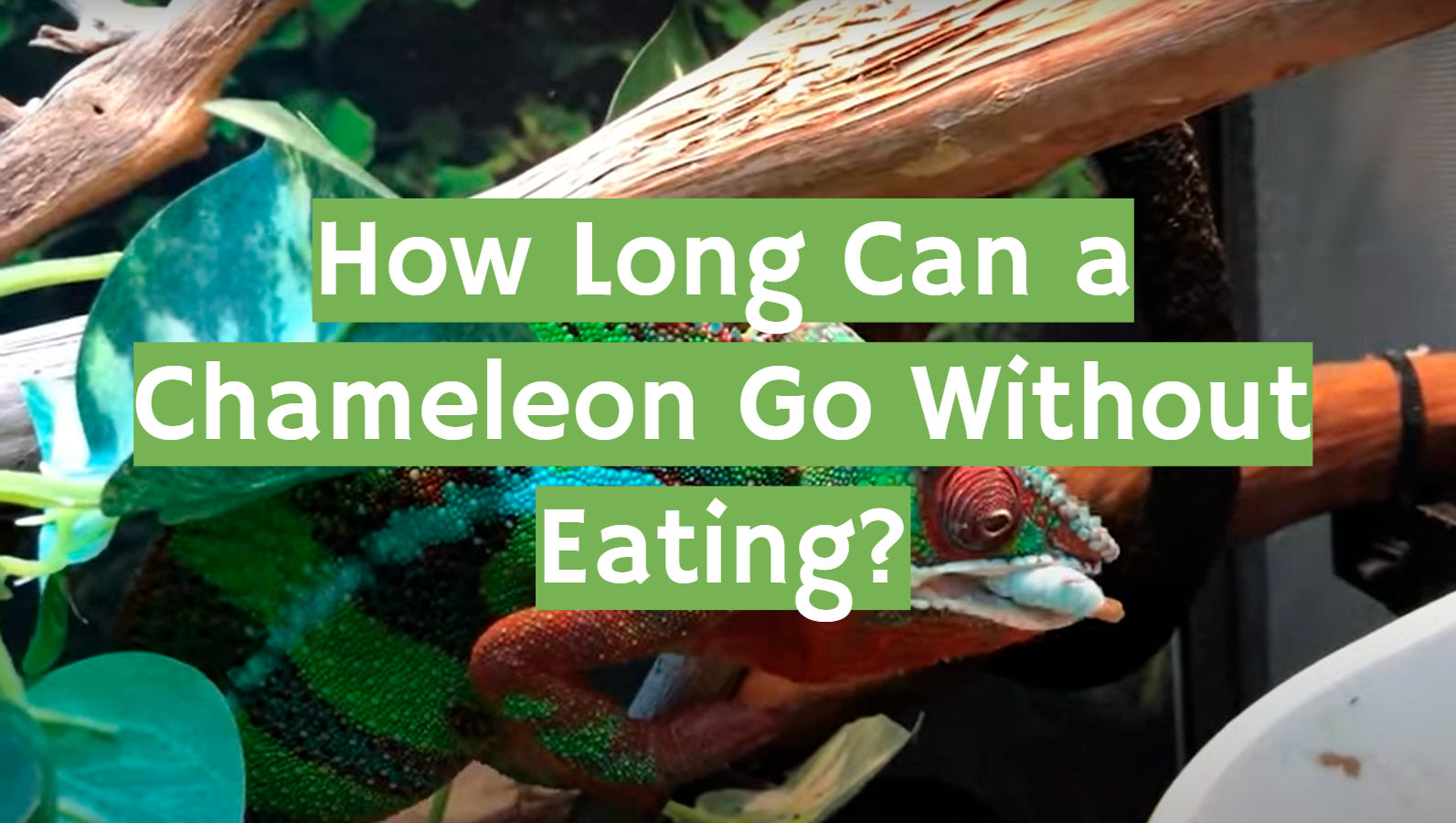
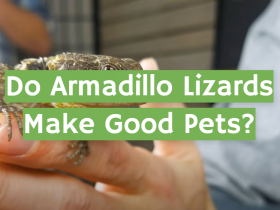

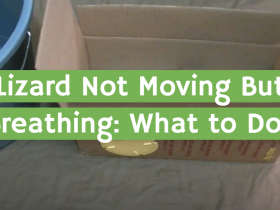

Leave a Review